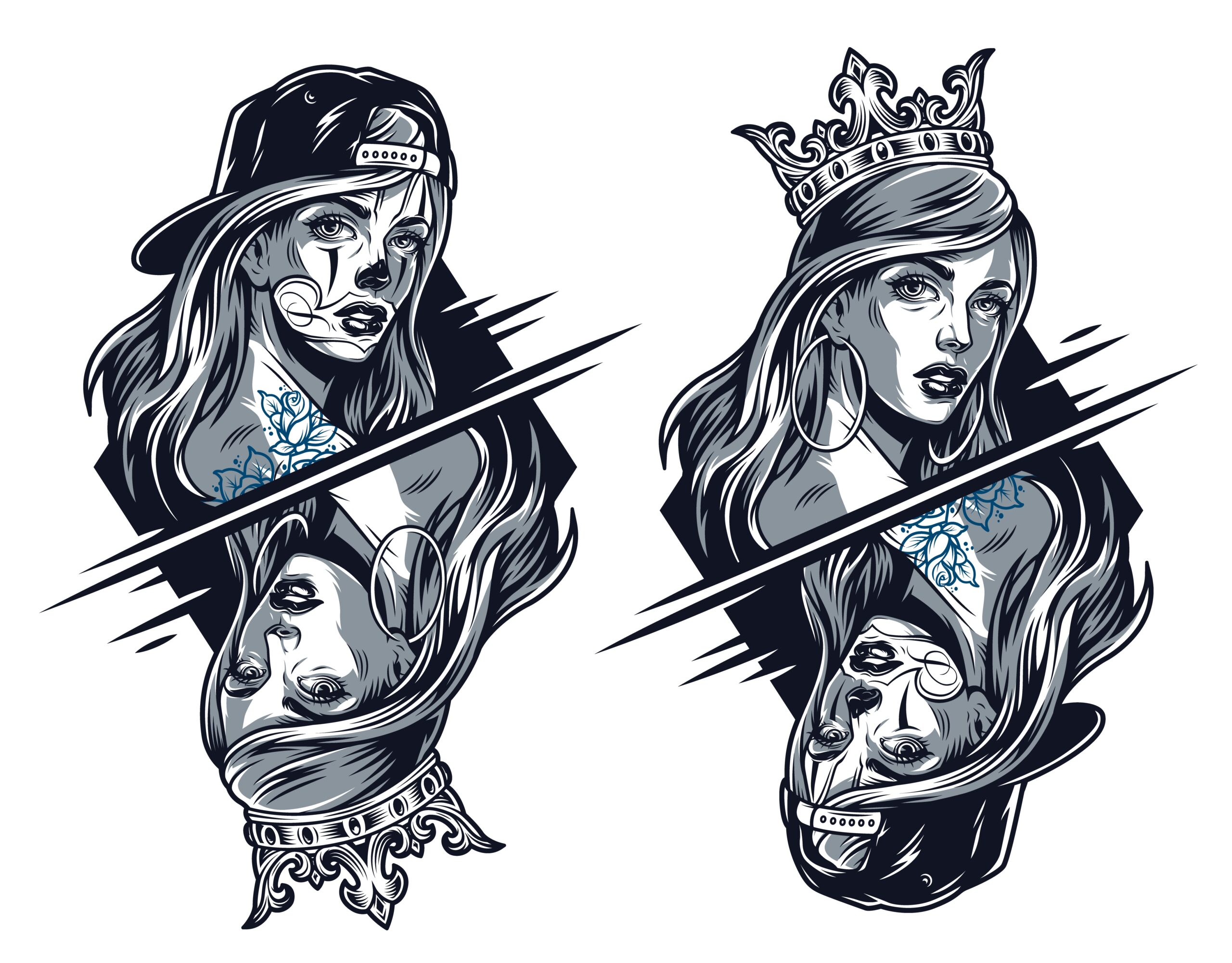Greek god tattoos have become one of the most captivating styles in modern tattoo culture. Rooted in the rich history of ancient mythology, these tattoos carry both artistic beauty and deep personal meaning. Whether someone chooses Zeus for leadership, Athena for wisdom, or Poseidon for mystery, each design reflects values that remain relevant even today.
Over the last decade, Greek mythology tattoos have gained popularity worldwide. Part of this comes from their versatility — they can be bold, detailed masterpieces stretching across the back, or small minimalist symbols that carry quiet strength. They also blend history, art, and personal storytelling in a way few tattoo styles can.
In this article, we’ll explore the origins and symbolism behind Greek god tattoos, highlight the most popular deities chosen for designs, break down different artistic styles and placements, and offer practical insights on cultural respect and aftercare. By the end, you’ll understand why Greek god tattoos remain a powerful, timeless form of self-expression.
The Meaning Behind Greek God Tattoos
Tattoos of Greek gods are not just about aesthetics — they are about meaning. Each god in mythology represented specific traits, values, and forces of nature. When someone chooses to wear these figures permanently on their skin, they are making a statement about what they admire or wish to embody.
For example, Zeus often represents authority and leadership, while Athena is seen as a symbol of wisdom and strategy. Choosing one over the other reflects what the individual values most in their own life.
Symbolism tied to ancient mythology:
- Strength and resilience are often reflected in depictions of Hercules or Zeus.
- Wisdom and intellect shine through Athena, the goddess of wisdom.
- Balance, healing, and light are found in tattoos of Apollo.
- Transformation and mystery belong to Hades and Poseidon.
In many ways, Greek god tattoos act as a bridge between ancient cultural heritage and modern identity. They allow people to celebrate mythology while also sending a personal message about who they are.
Popular Greek Gods Featured in Tattoos
When it comes to choosing a Greek god tattoo, certain deities appear more often because of their powerful symbolism. Let’s take a closer look at some of the most common gods and what they represent.
| Greek God | Symbolism in Tattoos | Common Visuals |
| Zeus | Power, authority, protection | Lightning bolts, throne, eagle |
| Poseidon | Ocean, storms, mystery | Trident, waves, sea creatures |
| Athena | Wisdom, justice, strategy | Helmet, shield, owl |
| Apollo | Music, light, healing | Lyre, sun rays, youthful face |
| Hades | Darkness, transformation, unseen forces | Cerberus, underworld imagery, shadows |
Each of these gods offers a different narrative, allowing tattoos to carry layered meaning. For example, someone who connects with Athena may be expressing intelligence and strategy, while a Poseidon tattoo might reflect a love of the sea and a mysterious personality.
Design Styles for Greek God Tattoos
One of the reasons Greek god tattoos remain popular is their artistic flexibility. Artists can draw inspiration from ancient sculptures, Renaissance paintings, or modern graphic interpretations. The style chosen changes not only the look but also the feel of the tattoo.
Realistic portraits vs. abstract interpretations: Some prefer lifelike tattoos that resemble marble statues, while others go for abstract or stylized versions that feel more symbolic.
Black-and-grey shading vs. colorful designs:
- Black-and-grey tattoos often look timeless and dramatic, emphasizing shadows and depth.
- Color tattoos can add vibrancy, using blues for Poseidon, golds for Apollo, or fiery tones for Zeus.
Sculpture-inspired tattoos: Many designs mimic Greek statues, complete with cracks, textures, and the appearance of stone. This creates a sense of wearing living art rooted in history.
These choices allow each tattoo to become unique — no two Zeus tattoos, for example, look exactly alike.
Ideal Placements for Greek God Tattoos
Placement is just as important as the design itself. The body becomes the canvas, and different areas allow for different levels of detail and impact.
- Arm and shoulder designs: These placements work well for medium-sized tattoos. They are visible yet flexible, and they allow gods like Zeus or Athena to be displayed with dignity.
- Back pieces for detailed scenes: The back offers a broad surface, perfect for full mythological storytelling. Artists can create dramatic compositions featuring multiple gods or epic battles.
- Smaller minimalist options: For those who prefer something subtle, small designs on the wrist, ankle, or behind the ear can carry quiet power.
| Placement | Best For | Visibility |
| Arm/Shoulder | Single portraits | Medium to high |
| Back | Large mythological scenes | Low to high |
| Wrist/Ankle | Minimalist designs | Subtle, low |
Greek Mythology-Inspired Scenes and Storytelling
While many choose single-god tattoos, others prefer full scenes inspired by mythology. These tattoos tell a story rather than just showcasing a character.
A common example is a scene showing Zeus hurling a lightning bolt, Poseidon rising from the sea, or Athena guiding warriors in battle. Love stories, such as Eros and Psyche, or legendary trials like Hercules’ labors, also translate beautifully into tattoo art.
These narrative tattoos often cover larger areas like the back, chest, or thighs. They allow the wearer to carry an entire myth on their skin, almost like a moving piece of art.
Cultural and Personal Considerations
Greek god tattoos carry centuries of history. For many, they are not just decorations but a connection to culture, philosophy, and storytelling.
It is important to approach these tattoos with respect. Ancient myths hold meaning for many people around the world. While tattoos are deeply personal, recognizing their cultural roots adds depth to the design.
At the same time, tattoos are personal journeys. A Zeus tattoo might remind someone of resilience during hard times, while an Athena tattoo might reflect intellectual achievement or personal growth. The balance between cultural history and personal meaning makes these tattoos especially powerful.
Tattoo Aftercare and Longevity
Once a Greek god tattoo is complete, caring for it properly ensures the design lasts for years. Intricate details, shading, and fine lines require attention to prevent fading.
Basic aftercare tips include:
- Keeping the tattoo clean and moisturized during healing.
- Avoiding direct sunlight while it heals.
- Following your artist’s guidance for washing and care.
Long-term care is equally important. Protecting tattoos from sun exposure, maintaining skin health, and considering occasional touch-ups help preserve sharpness and vibrancy.
Conclusion
Greek god tattoos combine history, symbolism, and artistry into a single design that stands the test of time. They are not just body art — they are expressions of values, identity, and respect for mythology. From Zeus’ power to Athena’s wisdom, from Poseidon’s mystery to Apollo’s light, each god tells a story that becomes part of the wearer’s own journey.
Choosing a Greek god tattoo is about more than aesthetics. It’s about aligning personal meaning with ancient symbolism and ensuring the design is cared for properly so it lasts a lifetime. Whether small and minimalist or large and dramatic, Greek god tattoos will always remain timeless, powerful, and deeply personal.
My name is Mustafa, and I have been blogging for over 5 years. I am passionate about sharing complete, accurate, and helpful information with my readers. Along with managing content on The Matcha Read, I also contribute blog posts to premium websites. My goal is to provide valuable insights in a clear and easy-to-understand way, so every reader walks away with useful knowledge.










